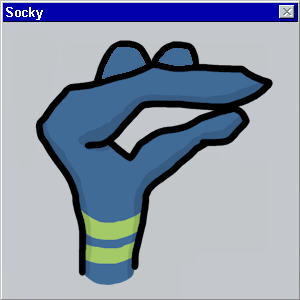"The symptoms of life"
January 1, 2017 2:15 AM Subscribe
In "Poor People," anthropologist Andrew Beatty recalls his fieldwork in Indonesia and portrays specific impacts of poverty easily obscured by generalized references to the poor. In "Return to the Field," he evokes what it's like to revisit the two scenes of his earlier research, encounter changes in individuals, families, and social/religious life, and learn the stark facts about how some things turned out.
A few of Beatty's more technical papers are also readily available:
A few of Beatty's more technical papers are also readily available:
- "Emotions in the Field: What Are We Talking About?" [PDF]: Beatty reflects on the anthropology of emotion via analyses of several cultural/linguistic phenomena, e.g. the uses on the island of Nias of a complex of phrases literally translated as "sticky-hearted," "having a curly hair in the heart," "having a heart like an unhulled rice grain," etc. and a minor research problem posed by what seem to be two distinct categories of emotions in Indonesian but no cover term equivalent to "emotion" in English.
- "Feeling Your Way in Java: An Essay on Society and Emotion": Beatty builds on the previous paper and presents numerous examples from his fieldwork in Java to explore the roles played by emotionally-charged interactions in symbolizing and structuring social life. "The most spectacular of these is the angklung caruk, in which two percussion orchestras try to outplay each other at the same time ... Each tries to steal the opponents’ tune, playing it louder and with cleverer variations, while supporters try to put off the other side, mocking and shouting abuse, pointing their behinds at them, drowning them with cheers." Videos on YouTube evidently capture at least the music [5 mins.] or music and dance [50 mins.] of the angklung caruk.
- "Kala Defanged: Managing Power in Java Away from the Centre" [PDF]: Beatty illustrates decentralized aspects of power in the village he lived in, e.g. how the resolution to a minor dispute may have locally defused what would become a witch-hunt / 'ninja' scare in nearby areas and how a group of elders worked together to select a headman based on auspicious passages randomly chosen from a 17th. C. narrative of the life of Joseph.
So far I've just read "Poor People," but it was beautifully written and compelling. I look forward to reading more.
It reminded me of some social science reading on community development work I did last year for a research project, about a reframing of "needs" into "assets." For a century or so interventions in communities have focused on what the outside society sees as unmet "needs" in impoverished communities. Over the last decade or so, new thinking directs attention to the community's "assets" - its tangible and intangible resources, attitudes, networks, knowledges, and skills -leveraging the existing qualities which are there in abundance in order to generate more lasting and effective positive change.
posted by Miko at 4:53 AM on January 1, 2017 [5 favorites]
It reminded me of some social science reading on community development work I did last year for a research project, about a reframing of "needs" into "assets." For a century or so interventions in communities have focused on what the outside society sees as unmet "needs" in impoverished communities. Over the last decade or so, new thinking directs attention to the community's "assets" - its tangible and intangible resources, attitudes, networks, knowledges, and skills -leveraging the existing qualities which are there in abundance in order to generate more lasting and effective positive change.
posted by Miko at 4:53 AM on January 1, 2017 [5 favorites]
I liked these essays, thank you for the post. The going back is something I've been thinking about a lot lately -- sometime in the next few years I am hoping to go back to where I lived in the Peace Corps, but I think a lot about exactly what he describes:
The ethnographer’s memory plays tricks with time. In jottings, tape recordings and anecdotes, things stay the same; you grow old but the people you knew are as ageless as their photographs, and the dialogue which plays in your head back home is with these fieldwork phantoms.posted by Dip Flash at 6:59 PM on January 1, 2017 [4 favorites]
« Older Introducing the Second Avenue Subway | Jeremy Irons reads TS Eliot Newer »
This thread has been archived and is closed to new comments


posted by infini at 2:47 AM on January 1, 2017 [1 favorite]